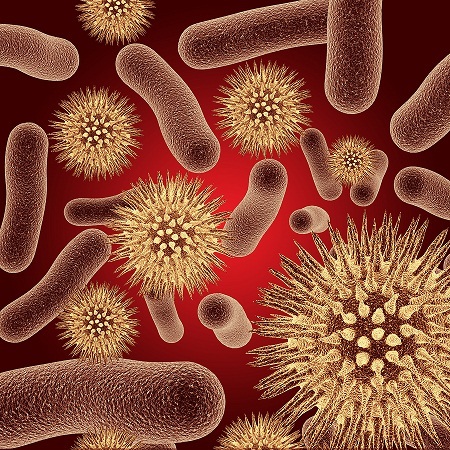 by Brian Shilhavy
by Brian Shilhavy
I haven’t had a cold in over 5 years. Just when I feel as though I’m coming down with something, the scratchy, sore throat symptoms….gone the next morning! I also used to get these little blisters on the bottom of my right foot. Someone told me they are some sort of herpes virus. Since using the coconut oil I don’t get these annoying little things. Usually they would surface in the summer or when the weather turned warm. But I realized this fall that I hadn’t been bothered this past summer. I believe that the coconut oil really helps ward off the virus. I also have hepatitis C and my viral counts are so low that they are almost in the undetected category. I don’t even worry about this anymore. Nancy
The antiviral, antibacterial, and antifungal properties of the medium chain fatty acids/triglycerides (MCTs) found in coconut oil have been known to researchers since the 1960s. Research has shown that microorganisms that are inactivated include bacteria, yeast, fungi, and enveloped viruses. Much of this research is highlighted in the writings of Dr. Mary Enig Ph.D, and can be found here.
Lauric acid is the most predominant MCT found in coconut oil. Regarding lauric acid, Mary Enig Ph.D writes:
Lauric acid is a medium chain fatty acid, which has the additional beneficial function of being formed into monolaurin in the human or animal body. Monolaurin is the antiviral, antibacterial, and antiprotozoal monoglyceride used by the human or animal to destroy lipid-coated viruses such as HIV, herpes, cytomegalovirus, influenza, various pathogenic bacteria, including listeria monocytogenes and helicobacter pylori, and protozoa such as giardia lamblia. Some studies have also shown some antimicrobial effects of the free lauric acid.1
Lauric acid is also prominent in the saturated fat of human breast milk, giving vital immune building properties to a child’s first stage of life. Outside of human breast milk, nature’s most abundant source of lauric acid is coconut oil.
Overuse of Antibiotics
One of the biggest problems facing modern society is the overuse of pharmaceutical antibiotics. This overuse is starting to concern many people, as new super germs that are antibiotic resistant continue to develop. The Infectious Disease Society of America reports that germs resistant to one or more drugs kill 100,000 US hospital patients a year and cost the healthcare system more than $34 billion.
Speaking at a conference in Copenhagen recently, Dr. Margaret Chan, the director general of the World Health Organization, stated that antibiotic resistance could bring about “the end of modern medicine as we know it.” Dr. Chan stated that hospitals have become “hotbeds for highly-resistant pathogens” like methicillin-resistant Staphylococcus aureus, “increasing the risk that hospitalization kills instead of cures.”2
Even if you are not taking antibiotics from your doctor, there is a good chance that you are getting plenty of pharmaceuticals through the foods you eat. 80% of all antibiotics sold in US go into farm animal feed. The U.S. Food and Drug Administration was sued in 2011 by a coalition of environmental and public-health organizations claiming the agency’s lax stance on antibiotic use in farming is leading to costly and potentially fatal infections in humans.3 But by the end of the year, the FDA announced they would no longer try to restrict the routine use of antibiotics in animal feed, as it was too expensive. They decided to let the industry regulate their use of antibiotics in livestock voluntarily.4
Instead of relying on man-made pharmaceuticals for everything, many are now turning to natural methods to boost the body’s immune system and resist harmful viruses and micro-organisms naturally. Coconut oil is truly one of nature’s best “germ fighters.”
I too have had major improvement with cold and sinus symptoms. I used to chronically get bronchitis at least 3 times a year. Already this year, I have had 2 bouts of cold symptoms, and increased the amount [of Virgin Coconut Oil] to nearly 6 tbls a day thus averting the yucky sickies. I must say that I am truly impressed with this stuff. I have also seen major improvement in my complexion, i.e… blackheads and breakouts. I use it directly on my face twice a day and my skin keeps looking better and better. Cheers to Virgin Coconut Oil!!! Laurie
I have hepatitis C. I was informed some time ago that the coconut oil can be a healing agent for this potentially fatal disease. I had undergone the medical treatment with interferon with no success. I was only real sick form the interfuron treatment, lost my hair, and became severely anemic. That was about 6 years ago. In the last 4 years I began nutritional regiments noted to help/heal hepatitis c. That includes flax seed oil, milk thistle, multi vitamins, and in the last 2 years- coconut oil. My viral load was initially at 5 million- high! In the last 3 years it has gone from that to 1/20th of a million- low! My Dr. is amazed. I feel better, more energy. And most importantly I now have the belief I can watch my grand-children grow up. I believe that the coconut oil was a major ingredient that boosted this healing. It is also yummy! Gay
Coconut Oil Offers Promise for Antibiotic Resistant Germs
Some of the most promising research in recent years has been in the area of using lauric acid or monolaurin, both derived from coconut oil, in treatments for antibiotic resistant super germs. One study was conducted at Georgetown University by Dr. Harry Preuss in 2005. Dr. Mary Enig writes:
One of the most serious and intractable medical problems facing doctors today is that of antibiotic-resistant infectious microorganisms, the so-called “superbugs.” One example is MRSA (methicillin-resistant Staphylococcus aureus), now a common source of blood poisoning and infection in hospitals (see sidebar below). Other examples of antibiotic-resistant infectious agents include Bacillus anthracis Sterne, virulent Escherichia coli, Klebsiela pneumoniae, Helicobacter pylori, and Mycobacterium terrae, viruses with lipid membranes, and a number of invasive fungi.
This problem has led to interest in researching the use of natural products to enhance the treatment of infectious disease, such as coconut oil and other oils rich in lauric acid as well as herbal remedies like originum oil, substances traditionally recognized for decades for their healing properties. While there have been many testimonies–so-called “anecdotes”–about the effectiveness of such natural treatments, until recently no published studies were available to doctors that would allow them to justify their use of these protocols.
Fortunately coconut oil and other lauric oils, as well as oregano oil, have recently been the object of study in the Georgetown University laboratory of Dr. Harry Preuss in the United States and this research has resulted in several published peer reviewed papers appearing in toxicology journals in 2005.
The antimicrobial properties of both volatile aromatic oils such as origanum (oregano) oil and medium chain fatty acids such as lauric acid and its derivative monolaurin from coconut oil have shown promise in these studies. As noted by these researchers, origanum oil, used as a food-flavoring agent, possesses a broad spectrum of antimicrobial activity due, at least in part, to its high content of phenolic derivatives such as carvacrol and thymol. Also, lauric acid, which is present in heavy concentrations in coconut oil, forms monolaurin in the animal body and this derivative of lauric acid can inhibit the growth of many pathogenic microorganisms.
Part of the research focused on Staphylococcus aureus. In vitro studies were performed on two strains of Staphylococcus aureus and this was followed by in vivo studies in mice. The effects of monolaurin and originum when used in combination were better than the most potent antibiotic and this research showed that these safe antimicrobial agents could be useful for prevention and therapy of Staphylococcus aureus and numerous other infections.
It is now clear and scientifically validated that the inclusion of coconut oil in the diet could and should be utilized for its preventive and healing properties.5
A study done in the Philippines in 2008 found that virgin coconut oil, added to antibiotic therapy, may help relieve the symptoms of community-acquired pneumonia in kids faster than antibiotic therapy alone:
The current study included 40 children between the ages of 3 months and 5 years old. All had community-acquired pneumonia and were being treated intravenously with the antibiotic ampicillin. Half of the group was randomized to also receive oral virgin coconut oil in a daily dose of 2 milliliters per every kilogram of weight. The oil was given for three days in a row. The researchers found that the respiratory rate normalized in 32.6 hours for the virgin coconut oil group versus 48.2 hours for the control group, according to the study. After three days, patients in the control group were more likely to still have crackles than those in the coconut oil group — 60 percent of the controls still had crackles compared to 25 percent of the coconut oil group. Those in the coconut oil group also had fevers for a shorter time, had normal oxygen saturation faster, and had shorter hospital stays, but Erguiza said these findings did not reach statistical significance. How might the coconut oil work to ease pneumonia? Erguiza hypothesized that it may boost ampicillin’s effectiveness because it contains lauric acid, which is known to have antimicrobial properties, she said.6
Coconut Oil and Viruses
Antibiotics are not effective in treating viruses, but the lauric acid and monolaurin derived from coconut oil has been known to destroy viruses since at least the 1960s. Dr. Mary Enig summarizes much of this research:
Recognition of the antimicrobial activity of the monoglyceride of lauric acid (Monolaurin) has been reported since 1966. The seminal work can be credited to Jon Kabara. This early research was directed at the virucidal effects because of possible problems related to food preservation. Some of the early work by Hierholzer and Kabara (1982) that showed virucidal effects of Monolaurin on enveloped RNA and DNA viruses was done in conjunction with the Center for Disease Control of the US Public Health Service with selected prototypes or recognized strains of enveloped viruses. The envelope of these viruses is a lipid membrane.
There was an instance in the US in which an infant tested HIV positive had become HIV negative. That it was fed with an infant formula with a high coconut oil content gains significance in this context and at present an effort was on to find out how the ‘viral load’ of an HIV infected baby came down when fed a diet that helped in the generation of Monolaurin in the body.
Of the saturated fatty acids, lauric acid has greater anti-viral activity than either caprylic acid (C-10) or myristic acid (C-14). The action attributed to Monolaurin is that of solubilizing the lipids …in the envelope of the virus causing the disintegration of the virus envelope.” In India, coconut oil is fed to calves to treat Cryptosporidium.7
From 1999 – 2000 a study was done at San Lazaro hospital in Manila by Conrado S. Dayrit, MD, and the affect of coconut oil and monolaurin on the viral load of HIV patients. It was found that lauric acid did bring down the viral load of HIV patients. You can read more about this study here. Dr. Dayrit conducted similar studies on the SARS virus, since the coconut oil consuming Philippines population was relatively unaffected by the SARS outbreak that happened in China and other countries a few years back.
My roommate has been a herpes carrier for years–not the genital herpes, but my understanding is that all cases of herpes are viral, and that is the important common denominator. Virgin Coconut Oil (VCNO) is an anti-viral and breaks down what is called the “lipid envelope” surrounding the herpes cell. She initially got herpes in her eye many years ago, and it was basically dormant for several years after getting the initial episode under control. About 20 years later, it became re-activated when she acquired another herpes infection doing post mortem care on a patient in the hospital. The patient did not have a known diagnosis of herpes, but my roommate remembers cutting her finger on a piece of metal on the bed frame while giving this care. Perhaps the virus had been dormant for years on the bed. (If that is the case, and we will never know, so much for hospital cleanliness)! This time the herpes affected her spine, and she had a long bout of it, with much pain and suffering. This one was harder to get under control, and she had a few minor flare-ups. Since beginning VCNO, she has not had so much as a cold sore. Only time will tell for sure, but so far it’s looking good, and she is getting other very positive results from the oil. Debby
Just a testimonial. I learned about the purported benefits of coconut oil and lauric acid last summer on the internet. I began taking it because I had, as it turned out, been misdiagnosed, with Herpes 2. My father is a biochemist who taught medical school and graduate school for 35 years before retiring. So before I began taking it, I ran some literature by him. He was impressed so I have been taking it ever since. But my family hasn’t. This October, I received a call from my eldest daughter who is in college. She had been diagnosed the day before (by blood tests) that she had mononucleosis. I checked to see if the virus (Epstein-Barr) was lipid enveloped, and found that it was. I got on the internet and found her some Lauricedin pills and had them overnighted to her. She received them on a Wednesday and began taking the prescribed dose daily. Nine days later, a Friday, she called to tell me she was well. Subsequent blood work the following week confirmed that she was. Her other classmates who had gotten mono and had not taken monolaurin, remained sick for weeks and some were not even well by the end of the semester. I told my dad and he was impressed again. Seems like coconut oil should be the prescribed regimen for mono. David, Attorney, Memphis TN
Coconut Oil as a Topical Germ Killer
There has been good research lately showing that coconut oil is also a good topical agent for fighting germs! People living in the tropics have known this for thousands of years already, of course. It is good to see some of the research catch up with the facts. A study published in 2010 in Skin pharmacology and physiology looked at the “effect of topical application of virgin coconut oil on skin components and antioxidant status during dermal wound healing in young rats.” They found that Virgin Coconut Oil-treated wounds healed much faster, as indicated by a decreased time of complete epithelization and higher levels of various skin components.8
A study done in 2009 in the Journal of investigative dermatology found that the lauric acid found in coconut oil had the potential to be more effective antibiotics in treating acne vulgaris.9
Find more information about how wonderful coconut oil is for your skin in our Coconut Oil for Skin Health article.
Coconut Oil Proven to be a Powerful Germ Killer
One of the claims we constantly hear against coconut oil is that there is no research to back up any of the claims to health benefits. That is simply not true, and the research behind coconut oil’s ability to fight pathogens is well documented and well-known. Much of the research is regarding components of coconut oil or specific fatty acid extractions, since such products can be patented, while coconut oil cannot, since it is a basic dietary oil. More and more people are finding out just how powerful the medium chain fatty acids are in fighting pathogens. Here are a couple more examples:
Research done in the Philippines found monolaurin from virgin coconut oil to be comparable in effectiveness, or even more effective, in fighting Mycobacterium tuberculosis as antibiotic drugs streptomycin, isoniazid, rifampicin, and ethamburol. The study was conducted by Jonathan Cabardo in his dissertation for a PhD degree in biological science at the University of Santo Tomas. His adviser was Dr Delia Ontengco, a well known microbiologist and professor at the UST Graduate School.10
A medical doctor in Florida recently saw excellent results from using coconut oil in treating Helico Pyloric Bacteria in the gut in his patients. They took one teaspoon of virgin coconut oil three times a day, and saw results as good or better than taking antibiotics. Read his report here on coconut oil and stomach acid.
So as super germs continue to develop and antibiotics lose their effectiveness, look to coconut oil as a possible alternative that is 100% natural.
About the author: Unlike many people who write about coconut oil by simply reading about it, Brian Shilhavy actually lived in a coconut producing area of the Philippines for several years with his family, observing firsthand the differences between the diet and health of the younger generation and those of his wife’s parents’ generation still consuming a traditional diet. This led to years of studying Philippine nutrition and dietary patterns first hand while living in a rural farming community in the Philippines. Brian is the author of the best-selling book: Virgin Coconut Oil: How it has changed people’s lives and how it can change yours!
Read the Virgin Coconut Oil eBook on Your Mobile Device!
References
1. Mary G. Enig, Ph.D. “Health and Nutritional Benefits from Coconut Oil: An Important Functional Food for the 21st Century” Presented at the AVOC Lauric Oils Symposium, Ho Chi Min City, Vietnam, 25 April 1996
2. Reported by ABC News on March 16, 2012.
3. Historic Lawsuit: FDA Sued over Antibiotics Allowed in Farm Animals by Rodale.com
4. Big Farma Convinces FDA to Take a Dive, Alliance for Natural Health
5. More Good News on Coconut Oil, Weston A. Price Foundation
6. Reported in U.S. News and World Report, October 30, 2008. http://health.usnews.com/articles/health/healthday/2008/10/30/coconut-oil-may-help-fight-childhood-pneumonia.html
7. Mary Enig Ph.D. on the Effects of Coconut Oil on Serum Cholesterol Levels and HDLs
8. Effect of topical application of virgin coconut oil on skin components and antioxidant status during dermal wound healing in young rats. Skin Pharmacol Physiol. 2010;23(6):290-7. Epub 2010 Jun 3.
9. Antimicrobial property of lauric acid against Propionibacterium acnes: its therapeutic potential for inflammatory acne vulgaris J Invest Dermatol. 2009 Oct;129(10):2480-8. Epub 2009 Apr 23.
10. Glycerol Monolaurate (GML) in Virgin Coconut Oil destroys tuberculosis bacteria




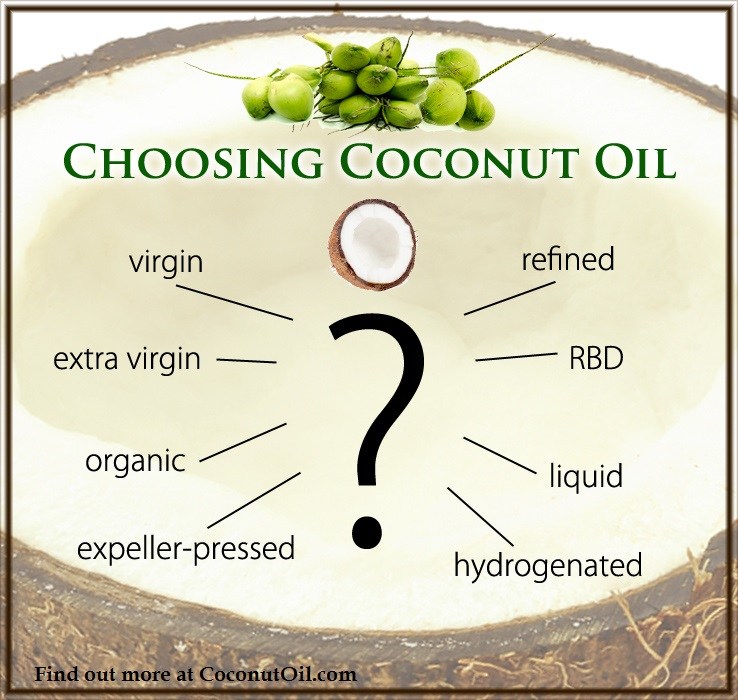

 HHS Secretary Kennedy Breaks His Promise: "War on Saturated Fat" Kept in Tact with New U.S. Dietary Guidelines
HHS Secretary Kennedy Breaks His Promise: "War on Saturated Fat" Kept in Tact with New U.S. Dietary Guidelines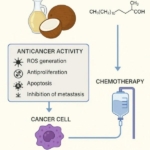 Research Continues to Show Virgin Coconut Oil's Effectiveness in Treating Cancer
Research Continues to Show Virgin Coconut Oil's Effectiveness in Treating Cancer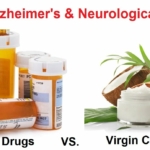 Coconut Oil Continues to Benefit Alzheimer's Patients over Drugs as Studies Continue for Neurological Benefits
Coconut Oil Continues to Benefit Alzheimer's Patients over Drugs as Studies Continue for Neurological Benefits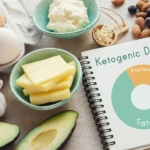 How the Simple High-Fat Low-Carb Ketogenic Diet Continues to Change People's Lives
How the Simple High-Fat Low-Carb Ketogenic Diet Continues to Change People's Lives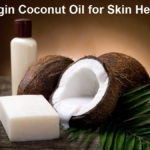 New Studies Continue to Show that Coconut Oil is the Best Oil for Treating Skin Conditions and Maintaining Healthy Skin and Teeth
New Studies Continue to Show that Coconut Oil is the Best Oil for Treating Skin Conditions and Maintaining Healthy Skin and Teeth